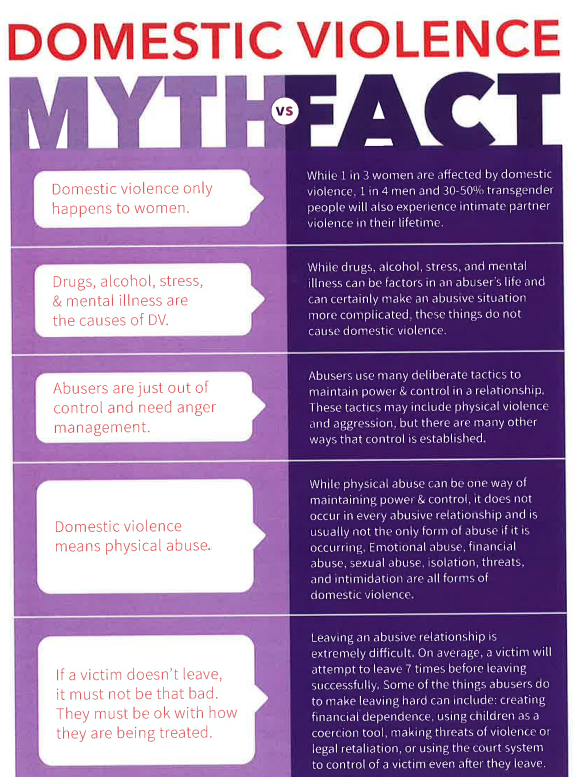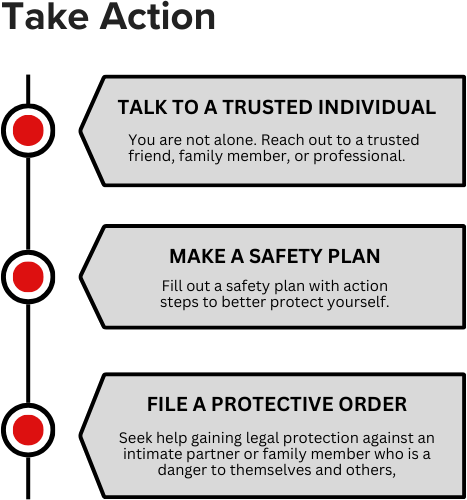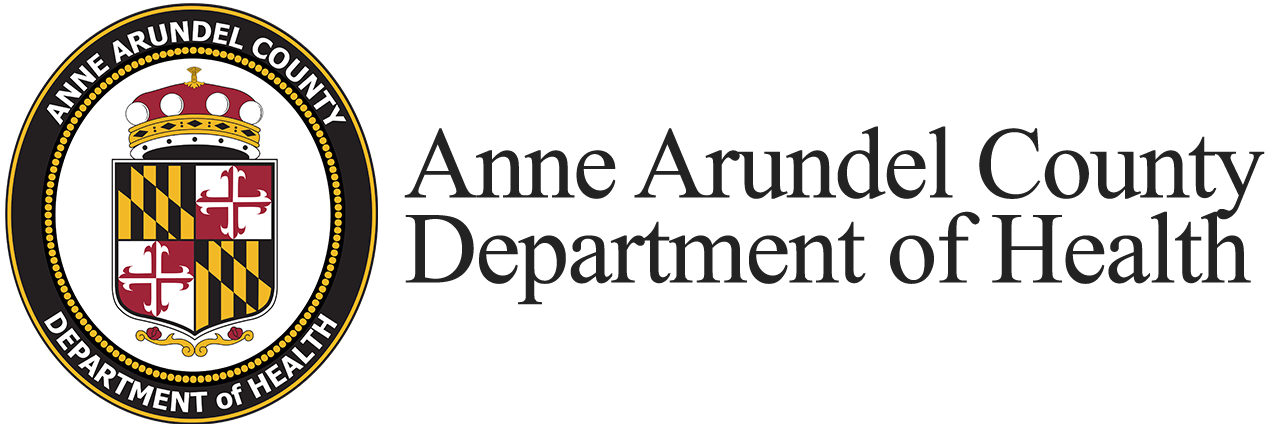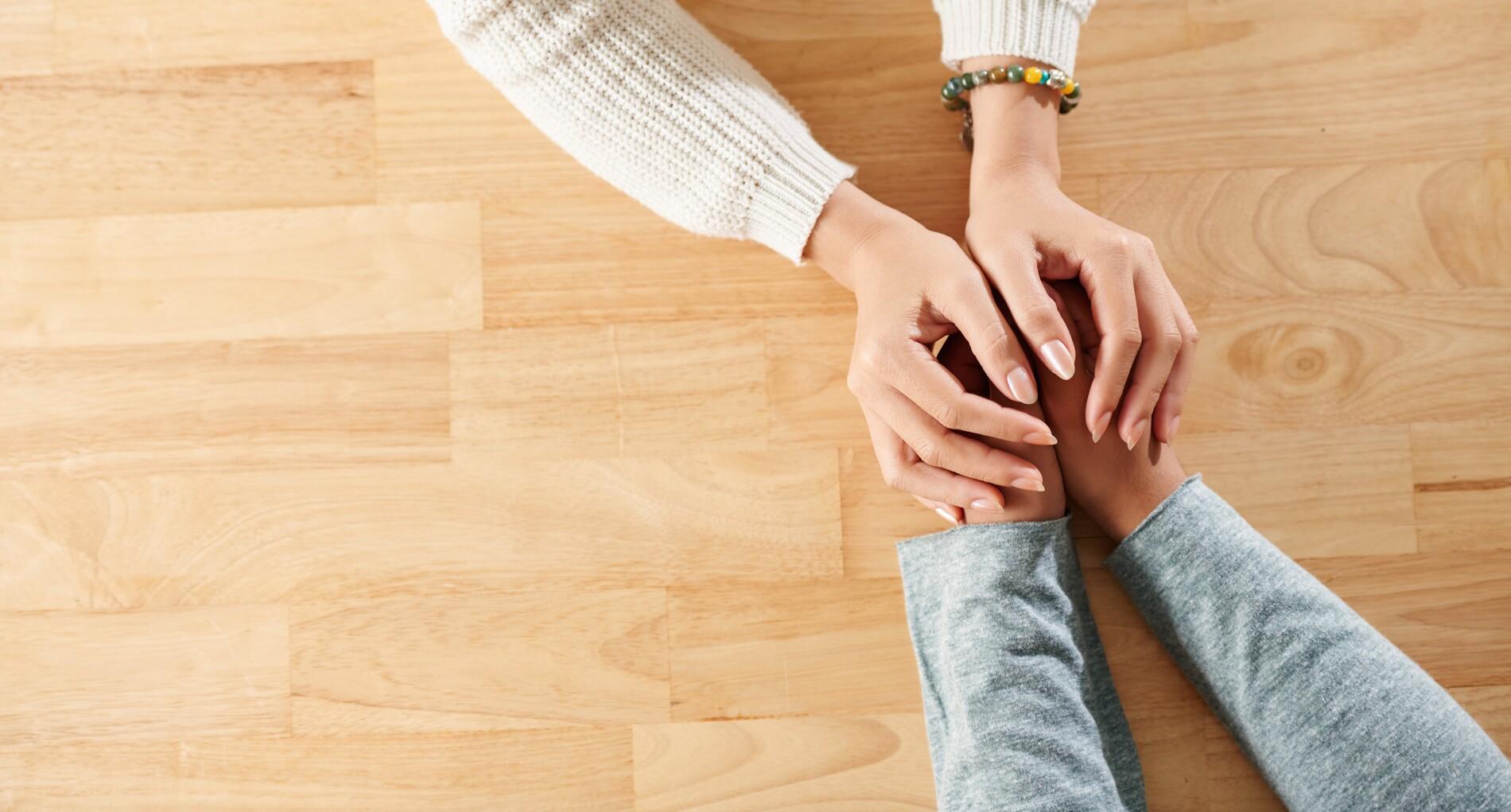Help is Just a Conversation Away
Anne Arundel County and Annapolis City YWCA
Domestic Violence Hotline: 410-222-6800
24 hours a day, 7 days a week
Intake Office Line: 410-626-7800
National Helpline: 1-800-799-SAFE (7233)
Or text LOVEIS to 22522
Services are available in English and Spanish
Maryland Helpline: Dial 2-1-1
24 hours a day, 7 days a week
County Warmline: 410-768-5522
24 hours a day, 7 days a week
Domestic Violence is a Public Health Issue
Twenty individuals each minute are the victim of domestic violence in the United States. Nearly one in four women and one in seven men will experience violence at the hands of their intimate partner in their lifetime. In 2021 alone, 58 Marylanders lost their lives to domestic violence which is the highest reported number of fatalities in recent decades. Anne Arundel County alone had 7 of these 58 deaths.
Guns and Domestic Violence are a Lethal Combination
Guns increase the level of violence in domestic violence incidents and increase the risk that there will be more injuries and fatalities. In the United States, nearly 70% of mass shooting incidents involve the killing of the shooter's intimate partner or family member or the perpetrator had a history of domestic violence. One in four homicides are related to domestic violence. In Maryland, nearly 8 in 10 domestic violence-related deaths in the state include victims, abusers and a gun.
Help is Available
Help is available if you or someone you know may be a victim of domestic violence. Local, state and national resources are available for individuals and families who need immediate assistance or recovery support.
Talk to Someone You Trust
Domestic violence can be very isolating and lonely for victims. To get help, start by reaching out to a trusted individual, whether that's a friend, family member, coworker, spiritual leader or medical professional. Local, state, and national hotlines are available to provide confidential support and to connect victims with resources.
National Helpline:
1-800-799-SAFE (7233)
Or text START to 22522
Services are available in English and Spanish
Maryland Helpline:
Dial 2-1-1
24 hours a day, 7 days a week
County Warmline:
410-768-5522
24 hours a day, 7 days a week
Make a Safety Plan
Create a personal safety plan with specific actions to better protect yourself, identify where to go for safety and what to do with personal belongings or pets. There are many templates available to draft a safety plan. Victims can also create their safety plan with help from a medical professional or YWCA case manager.
- Getting Started: House of Ruth in Maryland offers a series of questions for victims to consider in preparing their safety plan.
- Paper Copy: Hubbard House offers a safety plan template that can be printed and filled out.
- Digital Copy: The National Domestic Violence Hotline offers an online tool for creating a personal safety plan.
File a Protective Order
Guns escalate the severity and lethality of domestic violence. When a gun is present in a domestic violence situation, the risk of homicide increases by 500%. More than half of domestic violence homicide victims were killed by a current or former intimate partner with a gun. Guns in the home are also a risk factor for lethal violence. Among female victims of domestic violence, those who were threatened or assaulted with a weapon by a partner were 20 times more likely to be murdered.
Victims can take steps to protect themselves from gun violence by petitioning for a protective order against a partner who is threatening them. Individuals can contact any of the following local resources to be paired with a staff member who can petition and file for a protective order on your behalf:
- Anne Arundel County Police Department: Call the police department (410-222-8610) to be paired with an officer to petition for a protective order and be directed to additional resources.
- YWCA: Call the county and city YWCA office (410-626-7800) to chat with a case manager about receiving legal assistance for a protective order or a family lawyer.
Learn more about protective orders for domestic violence for Maryland residents by visiting the Maryland Courts information site. You can view a video series about the protective order process either in English or in Spanish.
Additionally, victims can petition for an Extreme Risk Protective Order (ERPO) against a partner or family member who is a danger to themselves and others. An ERPO is a court-issued order that temporarily prohibits a person in crisis from purchasing and possessing a gun and ammunition. Victims can either petition for themselves or, more commonly, contact a medical professional or law enforcement officer who will petition on their behalf. Learn more about ERPOs and commonly asked questions.
County Services
Each Anne Arundel County district has a domestic violence officer who has specialized training and only deals with domestic violence victims. The officers can also help victims through the process of getting help from the YWCA and petitioning the courts for protective orders and ERPOs. Call the non-emergency number, 410-222-8610 or your county district number to talk to an officer.
| Northern District: 410-222-6135 | Eastern District: 410-222-6145 |
| Southern District: 410-222-1961 | Western District: 410-222-6155 |
The Anne Arundel County and Annapolis City YWCA is the primary resource for domestic violence support in our local community. Anyone interested in taking part in programs and services can call the intake office line, 410-626-7800 to connect with a case manager. On-site services include:
- The Safe House, which provides secure, protected shelter for victims and their children.
- Legal services, which include a fee-scale and pro-bono family lawyers.
- Therapy support groups, which include one-on-one therapy and art therapy for children.
- Other assistance: Daycare assistance for parents, utility assistance, job training, transportation to appointments, food or clothing, and addiction support resources.
Learn more about the different resources available by visiting the YWCA's website.
Open the Maryland Network Against Domestic Violence's handbook.
Even for those who have left a dangerous relationship, domestic violence can cause long-lasting physical and mental symptoms. Wraparound services are available for survivors of domestic violence and their children. These include:
- Case management
- Support using health benefits for medical or mental health care
- Counseling and referrals to external agencies for therapy
- Legal assistance for protective orders
Statewide Services
There are many support services available throughout the state.
- House of Ruth provides shelter, counseling and childcare services. Maryland residents can call 410-889-7884 for the resource hotline.
- The Maryland 2-1-1 allows victims to search for domestic violence resources in their area. Victims can also call or text 2-1-1 to be connected with services.
- The Maryland Network Against Domestic Violence provides educational resources, trainings and events, technical assistance, and coordinates a network of domestic violence survivors.
For Special Populations
Pregnant Women
Domestic violence is a leading cause of death for pregnant women in the United States. For some women, abuse can begin or escalate during pregnancy which can lead to complications, including babies born prematurely or having low birth weights. Learn more about how to stay safe for your 9 months.
Women of Color
Rates of domestic violence are significantly higher among women of color. More than 40% of black women are the victims of domestic violence and are 2.5 times more likely to be murdered by an intimate partner than white women. One in three Hispanic women will experience domestic violence in their lifetime. Learn more about domestic violence amongst women of color either in English or Spanish.
Men
One in seven men will experience domestic violence in their lifetime, however, men are less likely to report the abuse or seek help. Not all domestic violence is physical. Men can experience many forms of abuse, including belittling, harassment, manipulation and control, destruction of property and control over finances.
LGBTQ Individuals
Individuals in LGBTQ relationships are just as, or even more likely, to be victims of domestic violence as individuals in heteronormatic relationships. However, victims in LGBTQ relationships may have additional barriers to accessing help. These obstacles can include fear of isolation, shame, denial of services, or limited legal services.
Teens and Young Adults
Young women and teens experience domestic violence at higher rates than other age groups. The forms of abuse can include teen dating violence or family violence. Love is Respect provides information, resources, and confidential support for teens, young adults and loved ones seeking help.
Understand Common Myths
There are many common myths about domestic violence for abusers and victims.

Learn the Warning Signs
Signs of domestic abuse aren't always physical. Familiarize yourself with these common warning signs of domestic abuse:
Physical Signs
- Black eyes
- Busted lips
- Red or purple marks on the neck
- Sprained wrists
- Bruises on the arms
Emotional Signs
- Low self-esteem
- Overly apologetic or meek
- Fearful Changes in sleeping or eating patterns
- Anxious or on edge
- Substance abuse
- Symptoms of depression
- Talking about suicide
Behavioral Signs
- Withdrawn or distant
- Canceling meetings at the last minute
- Being late often
- Excessive privacy concerning their personal life
- Isolating themselves from friends and family
- Loss of interest in once enjoyed activities and hobbies
If you witness a domestic violence incident happening, call 9-1-1 immediately.
Start the Conversation
If you're concerned about someone who may be the victim of domestic violence, talking to them about the abuse can help them feel less isolated and realize that support is available. While it may seem uncomfortable to get involved, there are many resources available that can guide you through that conversation. Regardless of how you bring up the subject, it is important to never blame the victim.

Learn More about Gun Violence Intervention
This toolkit is a part of the Gun Violence Intervention Team's (GVIT) strategies for promoting gun safety in Anne Arundel County.
Supporting Documents
- 10 Tips For An Informed Conversation About Domestic Violence
- AACo Needs Assessment Domestic Violence
- Domestic Violence Myth vs Fact
- ERPOs And Protective Orders FAQ
- Maryland Safe At Home Brochure
- The Domestic Violence Victims Handbook
- Tips For Helping Someone Experiencing Domestic Violence
- YWCA Brochure
- YWCA Domestic Violence Flyer
Data Sources:
National gun injury data:
- Campbell JC, Webster D, Koziol-McLain J, Block CR, Campbell D, Curry MA… & Wilt SA. (2003). Assessing risk factors for intimate partner homicide. National Institute of Justice Journal.
- Everytown for Gun Safety: Guns and Violence Against Women.
- Maryland Network Against Domestic Violence: 2020 Homicide Prevention Report.
- Maryland Network Against Domestic Violence: 2021-2022 Fatality Review State Implementation Team
- Kivisto A & Porter M. (2019). Firearm use increases risk of multiple victims in domestic homicides. Journal of American Academy of Psychiatry and the Law.
- Grinshteyn E & Hemenway D. (2019). Violent death rates in the U.S. compared to those of the other high-income countries, 2015. Preventive Medicine.
- Websdale N, Ferraro K, & Barger SD. (2019). The domestic violence fatality review clearinghouse: introduction to a new National Data System with a focus on firearms. Injury Epidemiology.
- Zeoli AM. (2018). Multiple victim homicides, mass murders, and homicide suicides as domestic violence events. Battered Women’s Justice Project.
- Geller, L.B., Booty, M. & Crifasi, C.K. The role or domestic violence in fatal mass shootings in the United States, 2024-2019. Inj. Epidemiol. 8, 38 (2021).
https://doi.org/10.1186/s40621-021-00330-0
State domestic violence statistics:
- Maryland Network Against Domestic Violence: 2019 Homicide Prevention Report.
Toolkit Resource Sources:
Stay Informed
Get notified on upcoming engagements and the latest project related news.

